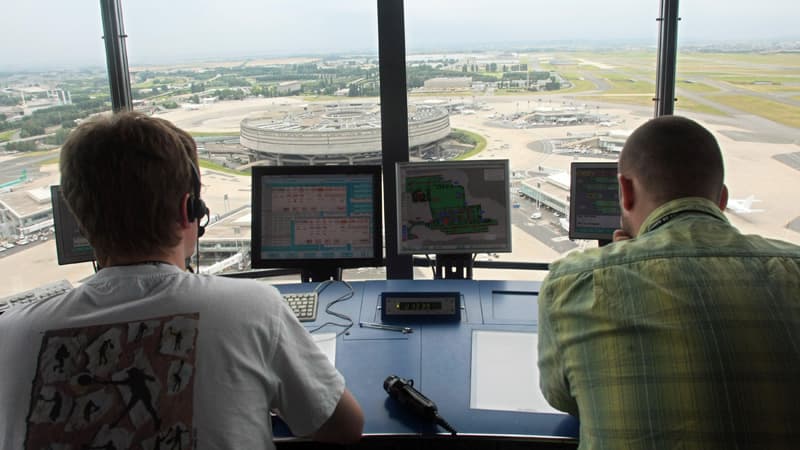A last resistance? Once again, the French skies will be disrupted by a strike by air traffic controllers on Monday, November 20, called by minority unions.
Specifically, on November 20, 25% of flights in Paris-Orly and Toulouse-Blagnac and 20% in Bordeaux-Mérignac and Marseille-Provence will be canceled.
The UNSA-ICNA, the USAC-CGT and the CFDT intend to protest on Wednesday against the approval of the bill intended to force air traffic controllers to individually go on strike or not with 48 hours in advance, as already happens in the RATP or the SNCF.
France, champion of air traffic controllers’ strikes
Enough to considerably change the consequences of the air traffic controllers’ strikes in France, where these movements are recurrent.
It must be said that France is the world champion of strike days in air traffic control. According to a senatorial study between 2005 and 2016, France recorded 249 days of strike, compared to 34 in Italy, 44 in Greece and less than ten in the other Member States.
Why do strikes initiated by minority unions have such an impact on the number of canceled flights? Especially because an “Olympic truce” had been signed with the main union of these professionals.
Questioned by BFM Business, Civil Aviation explains that “it must implement”, even for reduced mobilization, “the necessary limitations for the application of the minimum service in certain en-route air navigation centers (CRNA) and in 10 of the 16 main metropolitan airports and in the main foreign airports.
Minimum service
Clearly, since controllers are not required (until today) to individually go on strike when a union submits a notice, the DGAC is in total limbo. You must carefully evaluate the magnitude of the movement and therefore preventively reduce a number of important flights to guarantee this minimum service.
From now on, when the decrees implementing the law approved on Wednesday are published, civil aviation will have more visibility on the exact magnitude of a strike.
Specifically, the text requires that strikers communicate their participation in a social movement “no later than noon on the day before each day of strike.”
The DGAC will then be able to specify the number of canceled flights that, a priori, will be less significant in the future.
This “protective and balanced” text makes it possible to put an end to “an asymmetric system” that causes a “disorganization of the public service,” said the Minister of Transport, Clément Beaune, from the chamber.
The paradox of this issue is that the main air traffic controllers union says it is in favor of these new rules.
Satisfied airlines
The national union of air traffic controllers (SNCTA) points out the “instrumentalization of the right to strike and its unreasonable use” in certain circumstances.
On the airlines’ part, this is a historic victory. Rynair is particularly vehement against French air traffic control. “Hundreds of thousands of airline passengers have suffered delays due to French ATC strikes,” he complained last January.
It must be remembered that, due to France’s geographical position, the 1,750 French controllers must manage the planes that land and take off, but also the numerous planes that fly through French skies. In total, 3 million “movements” are registered in one year (2019 figure).
The Fnam (National Federation of Aviation and Trades) recalls that “the cost of cancellations for operators has been estimated at an average of 8 million euros per day and the cost of delays at an additional 6 million euros per day ( source Eurocontrol)”.
The lobby “is therefore pleased with the approval yesterday in the National Assembly, after its approval before the summer in the Senate, of a bill that establishes a system that they have been demanding for years and the only one that can guarantee a greater predictability, which is essential for both companies and passengers.”
Source: BFM TV


